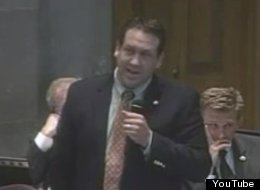It’s becoming more difficult for people to see how their vote is going to matter in the 2012 election. When states are increasingly passing voter ID laws that mandate voters prove they are citizens or that they are legitimate voters at the polls, while Super PACs are able to field millions of dollars, often from unidentified people, to influence elections, then democracy becomes less of a real thing to many people. A new survey from the Brennan Center for Justice shows majorities of Americans seeing Super PACs as corrupting forces on elections. There’s enough Super PAC distrust in the survey that many said they likely won’t vote. Evidently Bonnie Raitt isn’t the only person who feels, as she said in Rolling Stone, that “we have an auction instead of an election.”
Voters of color certainly feel that way. In the Brennan survey, African-Americans and Latino Americans were more likely than whites to say they feel discouraged from voting due to the outsized influence of Super PACs, and who can blame them? In many states, voters of color will have to go through the often user-unfriendly process of excavating birth and marriage documents, and then hoping there’s a DMV office close by that they can get to between shifts or after work hours, all to get ID cards that they otherwise wouldn’t need. Once done, they better hope their address doesn’t change (hope they’re not evicted, foreclosed upon or otherwise homeless), or that their name doesn’t change (hope they don’t get divorced), or if they are Latino, hope that their name is recorded correctly, or else they may get turned away after a long wait in line because the ID information doesn’t match with the registers.
Voters of color certainly feel that way. In the Brennan survey, African-Americans and Latino Americans were more likely than whites to say they feel discouraged from voting due to the outsized influence of Super PACs, and who can blame them? In many states, voters of color will have to go through the often user-unfriendly process of excavating birth and marriage documents, and then hoping there’s a DMV office close by that they can get to between shifts or after work hours, all to get ID cards that they otherwise wouldn’t need. Once done, they better hope their address doesn’t change (hope they’re not evicted, foreclosed upon or otherwise homeless), or that their name doesn’t change (hope they don’t get divorced), or if they are Latino, hope that their name is recorded correctly, or else they may get turned away after a long wait in line because the ID information doesn’t match with the registers.



















_thumb%5B3%5D.jpg)













